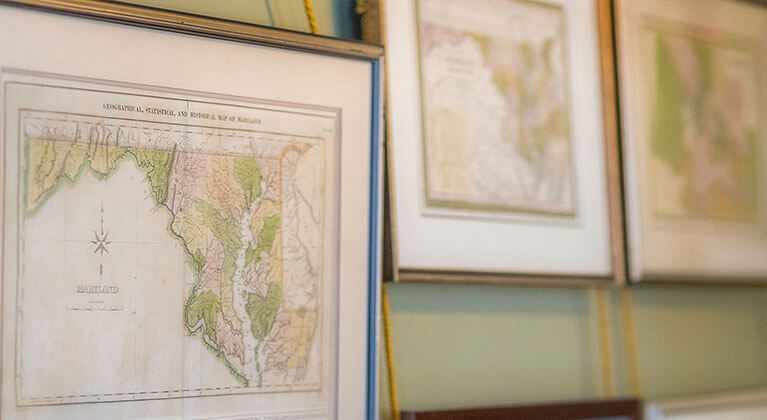It’s Never Too Late to Start Your Own Business
- September 5, 2017
- Business Law

Retirement isn’t for everyone. Some people have a hard time with the concept of “doing nothing,” and as they reach their late 50s, they wonder how they will fill their time in the future. Increasingly, many people who are approaching retirement age or are already retired are deciding to start their own businesses.
According to a Kaufman Foundation report, in 2016,
25 percent of entrepreneurs were age 55 to 64. In 1996, only 15 percent of entrepreneurs were in that age group.
The nonprofit business assistance organization SCORE calls these first-time, over-50 business owners “
encore entrepreneurs.”
This group of ambitious people launch businesses for a variety of reasons, including:
-
- Economic security – Owning a small business, even if only working part-time, can generate income to bolster savings accounts
- Control of their schedule – Some late-life entrepreneurs simply grow tired of the demands of their profession and decide to work for themselves
- Making money from a hobby – Retirement presents an opportunity to find new hobbies or to develop existing ones; if those hobbies can also generate income, that could be reason enough to pursue a hobby as a career
- Delaying retirement – With people living longer than ever before, a couple approaching age 60 may not feel the pressure to retire and enjoy their twilight years; rather, they may want to start a business and work another five to 10 years before leaving the workforce
With a good business model, planning, and professional guidance, almost anyone can become an encore entrepreneur.
Getting Started
In an article featured in
Forbes, entrepreneur William Perin discussed his decision to leave his 35-year career working for a major retailer to open a Batteries Plus Bulbs franchise. He said the first step in launching a business is networking and finding helpful resources, such as trainings offered through a chamber of commerce.
Perin said it’s also important to consider how opening a business will affect one’s personal relationships. Initially, entrepreneurs may be working long days, and several days a week. Eventually, owners may be able to scale back on hours to spend more time with family.
Putting Skills to Use
Entrepreneur Carolyn Brown opened her own
wedding planning business when she was 61, joining wedding associations to break into the field. In her new career, she drew upon her professional strengths in budgeting and communication, which helped her succeed.
If you plan to start a business with your husband or wife, you might each have different skills that could help you succeed in your new venture.
Creating a Concept
For any business to be successful, there has to be a need for the product or service you’re trying to sell. When you come up with an idea for a business, it’s a good idea to connect with a mentor, or to take advantage of free advice offered through SCORE, to make sure there’s a demand and market for the business you want to launch.
Finding Guidance
When you’re ready to put your plans in motion, a
business law attorney can help you by creating and reviewing the legal documents you need to protect your interests. To weather the ups and downs of running a business, you need a solid legal foundation.
Lusk Law, LLC, specializes in assisting entrepreneurs at start-up, and throughout the lifecycle of their business. Our business law firm has provided legal counsel and representation to business owners in Frederick County, Howard County, Baltimore County, Baltimore City, Carroll County, Washington County, Montgomery County, Anne Arundel County, and other counties in Maryland. If you have questions about starting a business, please call us at 443-535-9715 or fill out our contact form.
 Retirement isn’t for everyone. Some people have a hard time with the concept of “doing nothing,” and as they reach their late 50s, they wonder how they will fill their time in the future. Increasingly, many people who are approaching retirement age or are already retired are deciding to start their own businesses.
According to a Kaufman Foundation report, in 2016, 25 percent of entrepreneurs were age 55 to 64. In 1996, only 15 percent of entrepreneurs were in that age group.
The nonprofit business assistance organization SCORE calls these first-time, over-50 business owners “encore entrepreneurs.” This group of ambitious people launch businesses for a variety of reasons, including:
Retirement isn’t for everyone. Some people have a hard time with the concept of “doing nothing,” and as they reach their late 50s, they wonder how they will fill their time in the future. Increasingly, many people who are approaching retirement age or are already retired are deciding to start their own businesses.
According to a Kaufman Foundation report, in 2016, 25 percent of entrepreneurs were age 55 to 64. In 1996, only 15 percent of entrepreneurs were in that age group.
The nonprofit business assistance organization SCORE calls these first-time, over-50 business owners “encore entrepreneurs.” This group of ambitious people launch businesses for a variety of reasons, including:



